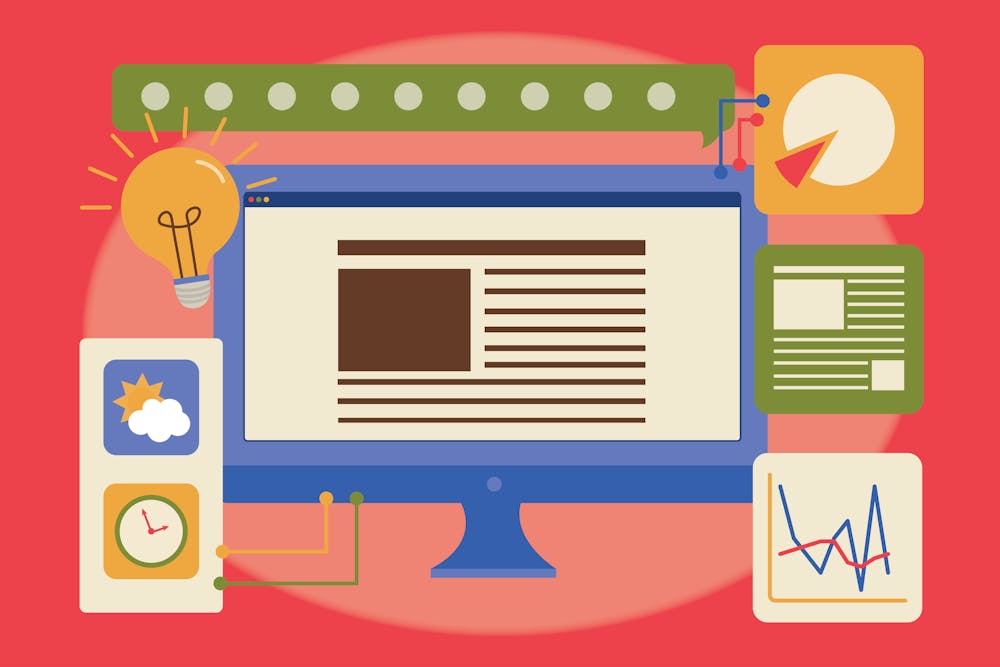It is incredibly important for people to have access to truthful information during an age of misinformation, but academic journals — which contain so much important knowledge — are often locked away instead of shared. The result is a lack of reliable content on the internet that is a disservice to everyone.
There are a multitude of reasons behind academia's elusive nature throughout history. Whether it be paywalls, complex or even downright incomprehensible papers, or even historical bias towards upper class men, academia has always found a way to make itself less accessible to the common person.
Social media can remedy a lot of these issues, as it can help close class boundaries by making information more largely widespread and digestible for the common person. Although some articles cannot be posted because of paywalls, many public universities are taking steps to make academic papers free. A study by the Journal of Informetrics said that making academic articles free to the public makes them more accessible to the general public via social media.
Academic papers are also often long-winded and costly, with graphs and information that people outside that area of study often cannot understand easily. Social media distributes the information found in these studies as quick synopses of their results.
Academics have recently been paying closer attention to this relationship between social media and academia. Dr. Ehsan Mohammadi, an associate professor at USC's School of Information Science, leads multiple research projects studying how social media could help spread academic research to the general public.
“Here’s academia, okay, and here’s the public. Most papers that they are publishing in academia don’t go outside academia. They're going to stay here” he said.

This lack of access is a problem that has plagued academia throughout its history. And even though more and more people are pursuing higher education, the problem still remains, as most people who go to college do not remain in academia their whole lives.
"More than half of the people that share content — scientific articles on these two platforms (X and Facebook) — they are non-academics," Mohammadi said.
Mohammadi and his team said this spread of information is a great positive because it means that much of the discussion on social media around academic topics is done by people outside of higher education. X, formerly known as Twitter, provides a space for people to share and discuss credible and important information, he said.
X and other social media are beneficial for allowing this information to make its way to people of many different ages, races, genders and disciplines. This opens the content up to people who historically have not had access to academic articles, most prominently people of color and those in lower socioeconomic positions.
Research also suggests that, given the opportunity, more people would properly use this space to pursue credible knowledge.
X was useful as a tool for disseminating information about the 61st annual Scientific Meeting at the Cardiac Society of Australia and New Zealand, according to a 2013 study led by the National Library of Medicine held in Australia. They studied how a trending hashtag linked to the meeting caused more people to discuss the findings presented at the meeting.
The researchers at the National Library of Medicine found that, through the use of social media, many X users who would not normally go out of their way to find information on such content, still viewed, liked and commented on those posts.
The results of this study said that people are not against the idea of learning credible information from social media, they just need better exposure to information that they know is reliable. Academia is a great source of this information, as it provides credible, formally measured studies on many topics.
Research areas such as poverty, business practices, taxation and history shape our society to be what it is. People working in academia get the opportunity to look at the world through a more objective, analytical lens, and while they are not completely free from bias, they are given the rare chance to pursue and share information based on measurable facts.
This begs the question, what advantages would society as a whole get from more complete access to academic research on the internet?
What if the average person could see the world as an academic does, with the means and resources to objectively study any issue? They could become a lot more informed, and even if that wouldn't directly lead to social progress, at the very least we could start a discussion around it.
So don’t trust everything you see on the internet. But maybe take a look at something outside your comfort zone, and you might learn something new.

